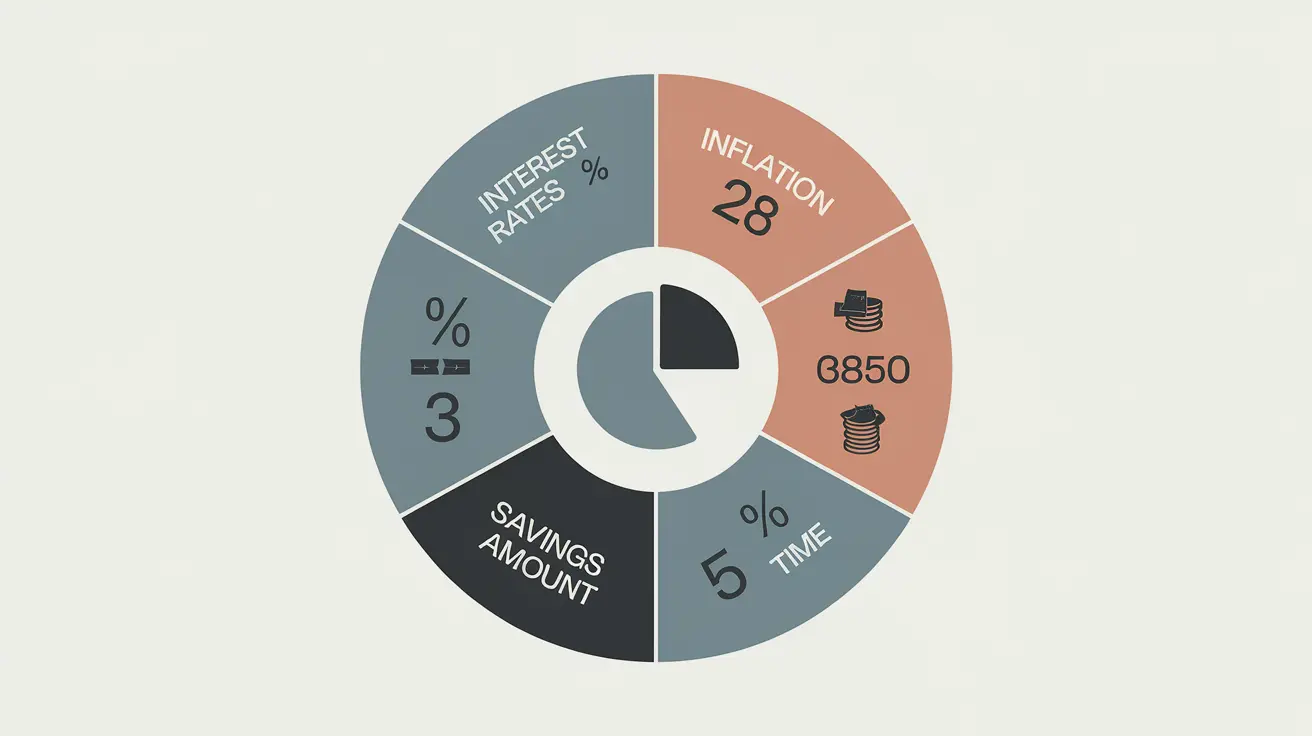Saving money is essential for financial stability and long-term goals. Understanding what influences savings growth can help individuals make informed decisions and maximize their financial outcomes.
Five key factors that affect savings growth and how they can be managed to achieve better financial results over time.
Interest Rate and Its Impact on Growth
One of the most important factors in savings growth is the interest rate offered by the bank. The interest rate determines how much extra money is earned on the balance of a savings account. A savings account calculator can help estimate how much interest will accumulate over a specific period.
Higher interest rates lead to faster savings growth, as the account earns more money on the deposited amount. It’s essential to compare different banks and financial institutions to find an account with a competitive interest rate.
On the other hand, low interest rates can slow down the growth process, making it harder to reach financial goals in a shorter time.
Account Fees Can Limit Growth
Another factor affecting savings growth is the fees associated with the account. Some savings accounts have maintenance fees, withdrawal fees, or penalties for falling below a minimum balance.
These charges can reduce the amount of money in the account, limiting its growth potential.It’s essential to choose an account that minimizes or eliminates fees.
Many institutions offer fee-free accounts with certain conditions, such as maintaining a specific balance or signing up for direct deposit. Avoiding unnecessary fees is a simple way to ensure that savings grow at the fastest possible rate.
SoFi advises individuals to, “look for accounts with minimal or no fees; otherwise, these expenses will eat into your interest earnings.”
Inflation Erodes Savings Over Time
Inflation is a critical external factor that impacts the value of savings. As the cost of goods and services increases, money’s purchasing power decreases.
This means that even if a savings account is earning interest, inflation can reduce the real value of the saved money.
To combat the effects of inflation, finding a savings account that offers a higher interest rate than the inflation rate is important.
Sometimes, exploring investment options that offer better returns might be a good idea. Staying aware of inflation trends can help protect savings from losing value over the years.
Frequency of Contributions Boosts Growth
The amount and frequency of contributions made to a savings account also significantly affect its growth rate. Making regular contributions, even if they are small, can lead to substantial growth over time.
A common mistake is relying only on large, infrequent deposits. Smaller, consistent contributions are more effective in building savings than waiting for a lump sum.
Setting up automatic transfers can help ensure that money is regularly added to the account, taking advantage of compound interest for faster growth.
Time Horizon Determines Long-Term Results
The time horizon refers to the length of time that the savings will remain in the account. The longer the money stays in a savings account, the more opportunity it has to grow through compounding interest.
A short-term approach may not yield significant growth, especially if the interest rate is low.For those with long-term goals, such as retirement or purchasing a home, keeping savings untouched for an extended period will allow for the most growth.
Patience and a long-term commitment to saving are key factors in achieving substantial financial growth.
Building up one’s savings relies on a number of factors and variables that are dependent on an individual’s financial literacy and how diligent they can be about budgeting.
Specifically, the interest rate, fees, inflation, contribution frequency, and time horizon will determine how much a savings account will grow.Individuals can optimize their savings strategies and ensure steady financial growth by understanding and managing each of these elements of a financial growth plan.
Planning for the long term and avoiding unnecessary fees will help savings grow and support one’s future financial goals.

